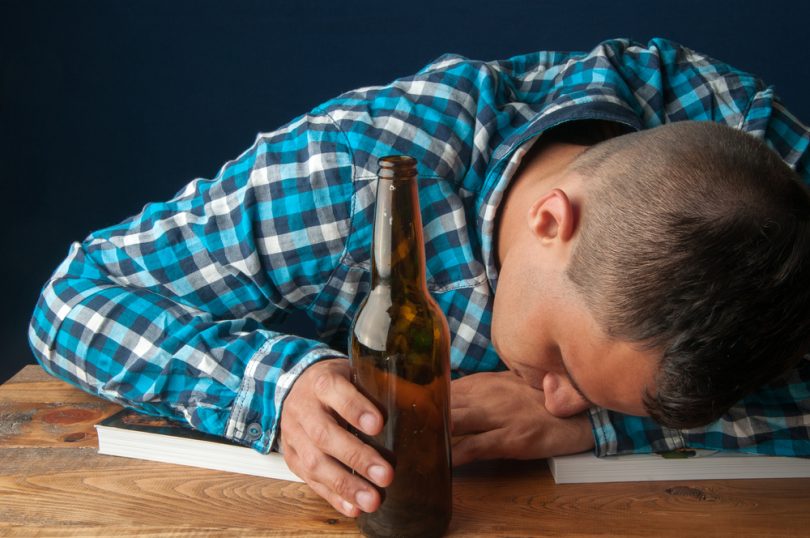Among college students, substance abuse (drugs and alcohol) is not uncommon.
Many college students view drinking alcohol as a ritualistic part of college, according to the National Institute on Alcohol Abuse and Alcoholism (NIAAA).
There are, however, many students who come to campus with pre-existing drinking habits.
According to a recent study, 37% of college students habitually overuse alcohol or illegal drugs.
It is an unfortunate situation that many teenagers find themselves in, with some at even higher risk due to various factors like socioeconomic status or mental health.
But it doesn’t have to stay that way.
There are ways to curb, prevent, and overcome drug and alcohol addiction, such as recovery centers that help people with addictions.
Here are some more tips to help you protect yourself from spiraling down:
Make The Decision To Stop
Most of the time, the first step is the hardest decision, but if you want to change, you need to make the decision.
Being courageous enough to say to yourself, “I need to stop,” is vital to help you from going further down into addiction is admitting that you have an addiction and need to make some changes.
It would be best if you decided on something to ensure everything will happen.
And as you make a decision, ensure you have an accountability person to keep you on track.
Be With People Who Support Your Decision
After deciding to stop using drugs and alcohol, you must surround yourself with friends who support your decision.
As mentioned in point one, these people can help hold you accountable.
If you do this, you may need to find a new group of friends who are 100% supportive.
You’ll unlikely be able to hang out with your drug-using friends unless everyone kicks their habit at once.
Supportive friends are necessary because there will be times when you need to call someone in the middle of the night for help.
Take advantage of your friend’s and family’s help if you are having a difficult time.
Take Action To Change Your Environment
A change in the environment can be a big help. If you decide to quit but still expose yourself to drugs or alcohol, it will be difficult.
If you continue to go to the same places and get exposed to your old bad routines, you have a much higher chance of relapsing.
Avoid your triggers and set healthy boundaries.
Make changes in the places, people, and situations you surround yourself with for your own sake. As the saying goes, “out of sight, out of mind.”
Make Yourself Busy
Keeping busy will help you to stay away from your desire to use. If you are too busy, you won’t have the time and energy to even think of using drugs or opening a bottle of alcohol.
In addition, establishing an exciting and rewarding hobby can also help you replace your old unhealthy habits with new ones that are drug-free.
Other recovering addicts also turn to sports and fitness to help their journey.
If not a hobby or a sport, you can spend your time doing volunteer work.
Volunteering and supporting a good cause will help remove your mind from using since you’ll be too busy to do so.
Moreover, community involvement can give you a sense of purpose, help you establish healthy connections and friendships, and make you feel good about your contribution.
Take Time To Learn Healthy Coping Skills

Learning a coping skill may not be familiar, but it can be beneficial.
The main reason people go into drugs and alcohol is to cope with the realities and issues of life. They use it as an escape from the feeling of depression, anxiety, and loneliness.
But it’s not the only way to cope with hardships.
There are many coping activities that you can do that are healthy; you can try to do the following:
- Embracing creative practices
- Prayer and meditation
- Deep breathing exercises
- Doing talk therapy
- Writing on a Journal
- Doing self-care
- Working out
- Hiking/ Nature Tripping
You must decide on a coping skill or activity to help you never go back to using drugs and alcohol when life’s problems do come.
Go To Rehab
For decades, families and individuals have turned to rehab as a sure and solid strategy to veer away from addiction.
It’s important to remember that there is no one-size-fits-all solution. Different centers may offer different programs, and the patients’ responses also differ.
However, it is most successful when individuals complete their treatment and follow up with aftercare.
Going to rehab doesn’t always mean that you’ll be away from your friends and you’re isolated. There are programs now that allow outpatients.
With outpatients, there is a medical support provision, and the necessary detox will be performed.
An outpatient rehab program is a good option if you have supportive family members who cannot afford inpatient treatment.
Whether inpatient or outpatient, a proper program can help stop the use of drugs and alcohol; you can understand it more, have sessions to help you address an underlying issue, and so much more.
Going to rehab ensures you will receive the help you need and can escape the cycle of substance abuse through an extensive program that centers provide.
In Conclusion
Taking steps to prevent drug addiction and alcohol abuse is the best way to avoid addiction.
Unfortunately, sometimes the addiction is too late, and someone is already trapped in it. The good news is that there is help available.
Hopefully, this article is of big help to help to keep yourself or your loved one from spiraling down the addiction road.
It is vital to make that first step of deciding to stop, surround yourself with supportive people, change your environment, make yourself busy, or go to rehab.
All these things are just small basic steps to a better life that is drug and alcohol-free.







